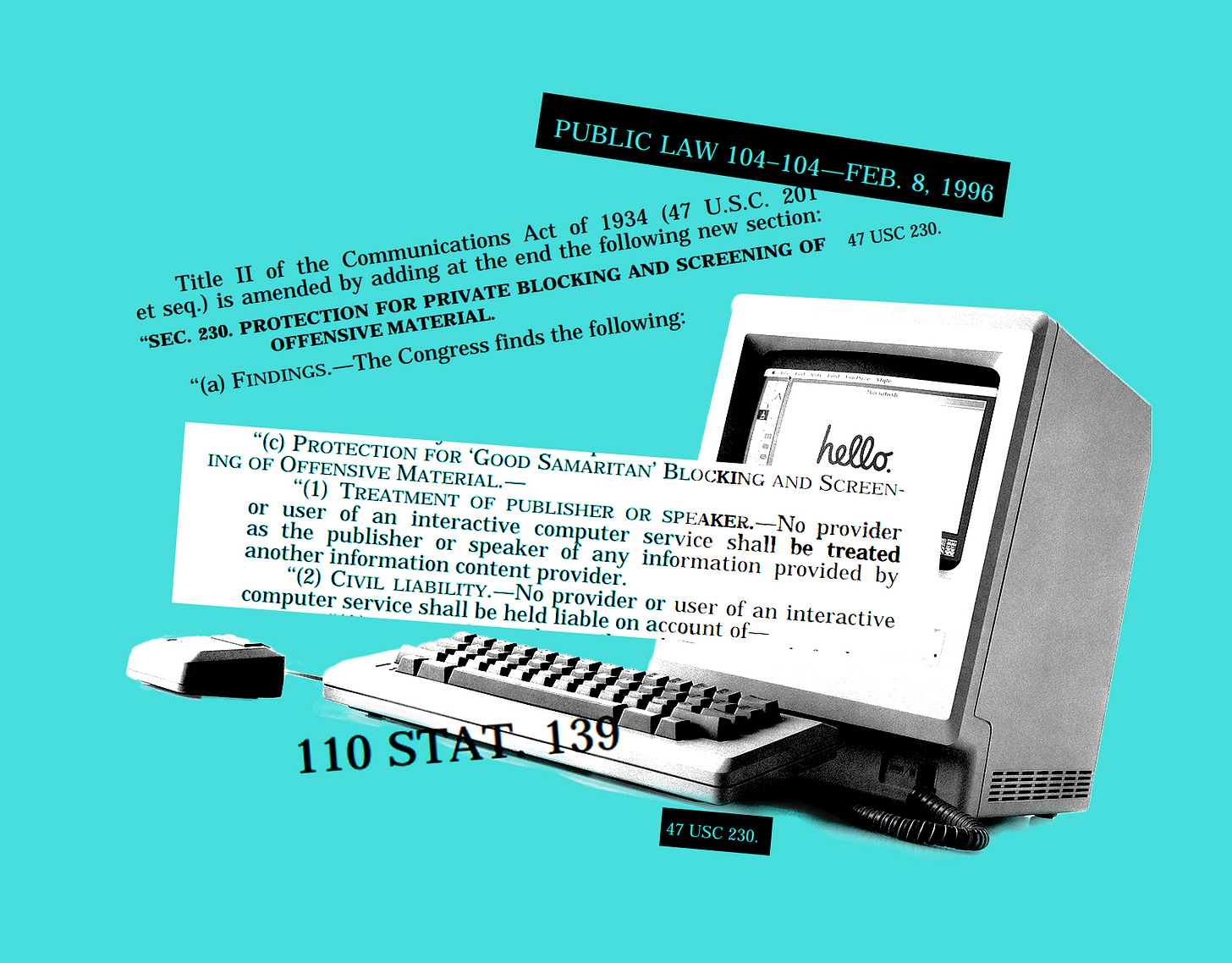Taking Up Trump’s Sec. 230 Petition Would Be a Mistake
The FCC should reassert its independence and avoid a bad policy fight.
Growing Republican participation in the war on “big tech” has many in the party on the precipice of sacrificing one of the Trump era’s more significant policy wins. While the sky has seemingly fallen in 2020, some Chicken Littles were proven decidedly wrong on “net neutrality.”
Towards the end of the Obama administration, the Democratic FCC majority effectively designated Internet Service providers (ISPs) as public utilities to prevent the companies from manipulating Internet traffic in allegedly harmful ways. This, despite scant evidence of such harms. They called this “net neutrality.” Critics of the move pointed to deleterious effects on critical network investment as a significant actual cost outweighing any theoretical benefit. There were also concerns about inappropriate political pressure in the FCC’s rulemaking process. All of this made reversing the utility designation a priority for regulatory reform-minded conservatives and the new Republican majority at the FCC.
The hyperbole over a wonky issue of regulatory classifications devised in the 1930s reached absurd levels. CNN proclaimed the new FCC majority’s move as “The end of the Internet as we know it,” and a bomb threat was called in to the Federal Communications Commission (FCC) on the day of the vote to roll back the Obama-era rules.
Today, even in the midst of a pandemic causing massive surges in traffic, the Internet in America is not just fine, it is outperforming global networks and more people are enjoying faster connections than ever. It is the defining victory for the FCC’s current Republican majority, and arguably one of the crown jewels of the broader Trump-era deregulatory push.
Alas, the culture war has gotten in the way.
Now the FCC has been asked to join the Trump administration’s war on Silicon Valley via a recent Executive Order and a subsequent petition for rulemaking from the Department of Commerce regarding Section 230 of the Communications Decency Act. Section 230 is a part of federal law law that provides critical liability protections for web services through a simple premise: You are responsible for what you say and do online, not the website where you do it.
Trump Republicans have targeted Section 230 as a way to exact revenge against web services like Google, Facebook, and Twitter over allegations of bias against conservatives.
If the current Republican FCC majority does as the White House wishes, and uses their regulatory power to gut Section 230, they will sacrifice the credibility of key policy arguments behind the rollback of the net neutrality rules. Not only that, it would make it almost impossible for right-of-center advocates to credibly defend retaining the current light-touch regulatory framework in anything resembling layman’s language.
First there is the matter of process. The FCC is an independent regulatory agency. The president appoints, and the Senate confirms the commissioners, but otherwise does not get to call the shots. Republicans were justifiably outraged when Obama-era FCC Chairman Tom Wheeler did a 180 on utility-style classification of ISPs in response to clear White House pressure. Now, the Trump White House is openly leaning on the FCC to gut Section 230, albeit in a more formal fashion. For an administration that dedicated its early years to wrangling in the expansive administrative state, this is throwing away one of its few early wins in the waning innings of the game.
The practical policy parallels are undeniable. In a nutshell, the progressive argument for net neutrality is that a few large ISPs could potentially block, throttle, and prioritize certain web data and therefore they should be designated as public utilities. Conservatives correctly responded that these are private companies entitled to do what they want with their property and that we should instead focus on lowering barriers to competition. The conservative argument against big tech? A few large companies are deleting or deprioritizing certain accounts and information while prioritizing their own products and services and therefore they should be treated as “public squares.”
Sound familiar?
Of course, there will be plenty of technical and legal wonks highlighting various differences between the ISP market and the big tech companies. The problem is that this kind of hair splitting doesn’t matter much in the court of public opinion. Progressives and conservatives alike perceive a problem of a handful of big companies having the ability to control the flow of information online; they just happen to be a different set of companies. The question then becomes, do big companies with said ability still enjoy the full set of speech, association, and property rights afforded to other private citizens and entities?
Whether it’s next year or five years from now, the net neutrality fight will likely rear its ugly head once again. It’s hard to imagine a world where conservatives are going to win that battle while backed into the corner of “Facebook is a public square but Comcast is not a public utility.” Those arguments don’t add up.
The current FCC majority would be wise to do what their predecessors should have done, which is to reassert the commission’s independence from the White House and sit out the Section 230 fight that Trump and his allies so desperately want.


